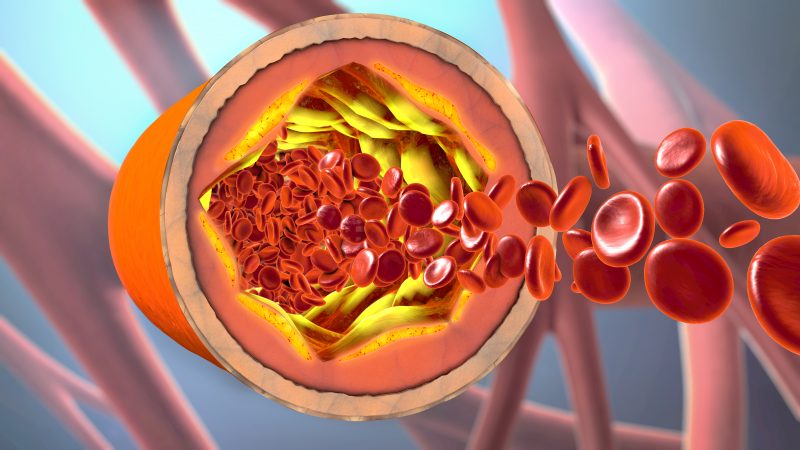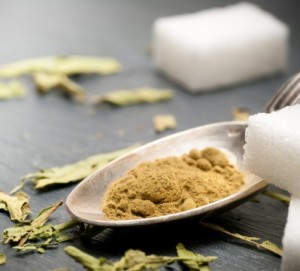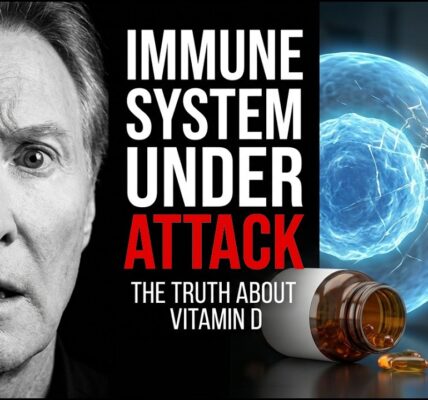Are you interested in lowering your cholesterol? Do you want to use Medium Chain Triglycerides (MCT)?
If you’re like most Americans, you are. You’re looking for foods, exercise, and lifestyle to reduce your risk of heart disease.
After all, every 38 seconds an American dies of heart disease or a cardiovascular disease-related condition.
That’s more than 800,000 Americans per year or 1 in 3 deaths (1).
While these numbers are clear, reducing cholesterol and heart disease risk isn’t.
The last several decades have been marred with misinformation concerning diet, cholesterol, and cardiovascular risk.
Many foods like MCT, a saturated fat, are falsely classified as detrimental.
But does MCT lower cholesterol?
Here’s what you need to know: types of cholesterol, their link to heart disease risk, and how MCT affects it.
What is Cholesterol?
Cholesterol is a fat compound. Our bodies and those of animals make it.
It is vital to human life.
Cholesterol forms about 30% of our cell membranes, is essential for the creation of health-promoting Vitamin D, plays a large role in neonatal nervous system development, and is a key component for important hormones like estrogen and testosterone.
Being fat-soluble, it needs help getting around the body in the water-soluble circulatory system. It needs lipoproteins.
Lipoprotein Function and Health Implications
Lipoproteins are protein compounds that carry cholesterol throughout the body.
They are classified based on their size and density. Most commonly, low-density lipoprotein (LDL) and high-density lipoprotein (HDL) are discussed.
HDL is the “good cholesterol.” It actually scavenges LDL cholesterol, taking it to the liver for excretion (2).
LDL is the “bad cholesterol,” and often thought as unequivocally detrimental to health.
However, this is not the whole story.
In fact, the majority of people suffering from heart disease have normal total cholesterol levels, and only 50% of those who’ve suffered a cardiovascular event have high cholesterol.
What’s more, a 2016 review of 30 studies and over 68,000 adults, showed no link between high LDL and mortality of any kind or high LDL and heart disease (3).
Admittedly, there are limitations to a review like this, and it’s not necessarily the final word.
But, it does show that the “cholesterol hypothesis” of high cholesterol increases the risk of heart disease and death is likely, not true.
There’s definitely more to investigate.
LDL and Heart Disease Risk
First, note that LDL cholesterol is not dangerous unless it becomes oxidized and enters the cell wall to form plaques.
Next, only one type of LDL is usually tested.
In fact, the risk is actually more associated with LDL cholesterol size, density, and the number of particles (LDL-P). Two LDL numbers are important and are highly variable in adults: LDL-C and LDL-P.
Cholesterol Tests, Types of LDL, and Triglycerides
Cholesterol tests usually include total cholesterol, LDL, and HDL levels.
As discussed, total cholesterol is somewhat insignificant. High cholesterol may simply mean high HDL. And again, there’s not a solid link between total cholesterol and heart disease.
LDL tests are usually a test of LDL-C only (LDL and LDL-C are used interchangeably). However, most cardiovascular risk is associated with LDL-P (number of particles), and not LDL-C.
LDL-C can be harmful or not harmful. When the LDL-C quality improves and they become bigger and fluffier cholesterol (not dense), this is a positive for health. Saturated fats like MCT improve LDL-C quality.
When the LDL-C is small and dense (low quality), they are harmful. In fact, the smaller they are, the more room the lipoprotein has to carry triglycerides. What’s more, this is associated with more particles needed or more LDL-P.
LDL-P and triglycerides are now known to be the best lipid profile tests for cardiovascular disease assessment. High LDL-P is associated with metabolic syndrome and several risk factors (4).
More Cardiovascular Risk Factors
High triglycerides, high LDL-P, and many cardiovascular risk factors correlate (5). These include:
- Obesity, specifically abdominal fat
- Diabetes and Insulin Resistance
- Metabolic Syndrome
- Chronic Inflammation and Oxidative Stress
- Hypertension
- Low HDL
When assessing risk, LDL-P, triglycerides, and these factors above should be taken into account, much more than total cholesterol or LDL-C.
MCT Oil: Does MCT Lower Cholesterol?
Yes, MCT can lower cholesterol. And, in many studies it does.
But more importantly, MCT improve cholesterol and heart disease risk, improving most all risk factors listed above (6, 7, 8, 9).
Some studies show MCT lowers LDL and raises HDL (6).
Some show an increase in total cholesterol, or even LDL-C (increased cholesterol quality along with HDL). LDL-P is not often tested even in research. However, as LDL-C quality increases, LDL-P decreases.
MCT improves overall cardiovascular health.
Bottom Line
Does MCT Oil lower cholesterol? Yes, it can. But, this is the wrong question. Instead, “Does MCT improve cholesterol and cardiovascular disease risk?” Absolutely.
















